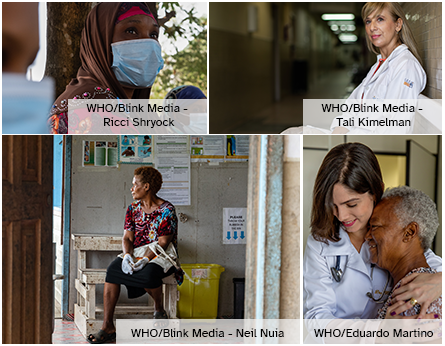
This course is the fourth of five courses on the clinical management of rape and intimate partner violence in humanitarian settings. This course focuses on first-line support, describes the five elements of the LIVES model (Listen, Inquire, Validate, Enhance safety, and support), and provides you with the knowledge and the skills needed to meet the survivor’s emotional and practical needs.
Language: English
Course information
Course overview:
First-line support is an essential part of the care that you can provide to survivors of sexual violence and intimate partner violence. It is an adaption of “psychological first aid.” First-line support involves responding to women who disclose violence in a way that is supportive, helps to meet their needs and prioritizes their continued safety without intruding on their privacy. First-line support helps to meet the survivor’s emotional and practical needs and may be offered whether a woman chooses to have a physical exam or requires any additional physical or mental care. This course introduces you to the LIVES model of first-line support. This model involves five elements (Listen, Inquire, Validate, Enhance safety, and support).
This course is the fourth course in a five-course series. We recommend to first complete the first three courses
- Introduction to the clinical management of rape and intimate partner violence in humanitarian settings
- Mental health and psychosocial support: Clinical management of rape and intimate partner violence in humanitarian settings
- Management of intimate partner violence in humanitarian settings
The course consists of videos, presentations, case studies, and quizzes. It focuses on knowledge and skill-building.
Course duration: Approximately one hour.
What you'll learn
- Explain how each of the five elements of LIVES supports survivors of sexual assault and/or intimate partner violence.
- Listen actively to survivors.
- Inquire about survivors’ needs and concerns.
- Validate survivors’ feelings.
- Assess immediate risk and enhance survivors’ safety; and
- Connect survivors with other resources to support their health, safety, and social support.
Who this course is for
- The primary audience for this program is qualified health care providers (e.g. health coordinators, medical doctors, clinical officers, midwives, and nurses) working in emergency situations. The program can also be used in planning care services and training health care providers.
Enroll me for this course
Featured content
Certificate Requirements
- Gain a Record of Achievement by earning at least 80% of the maximum number of points from all graded assignments.
- Gain a Confirmation of Participation by completing at least 80% of the course material.
- Gain an Open Badge by completing the course.